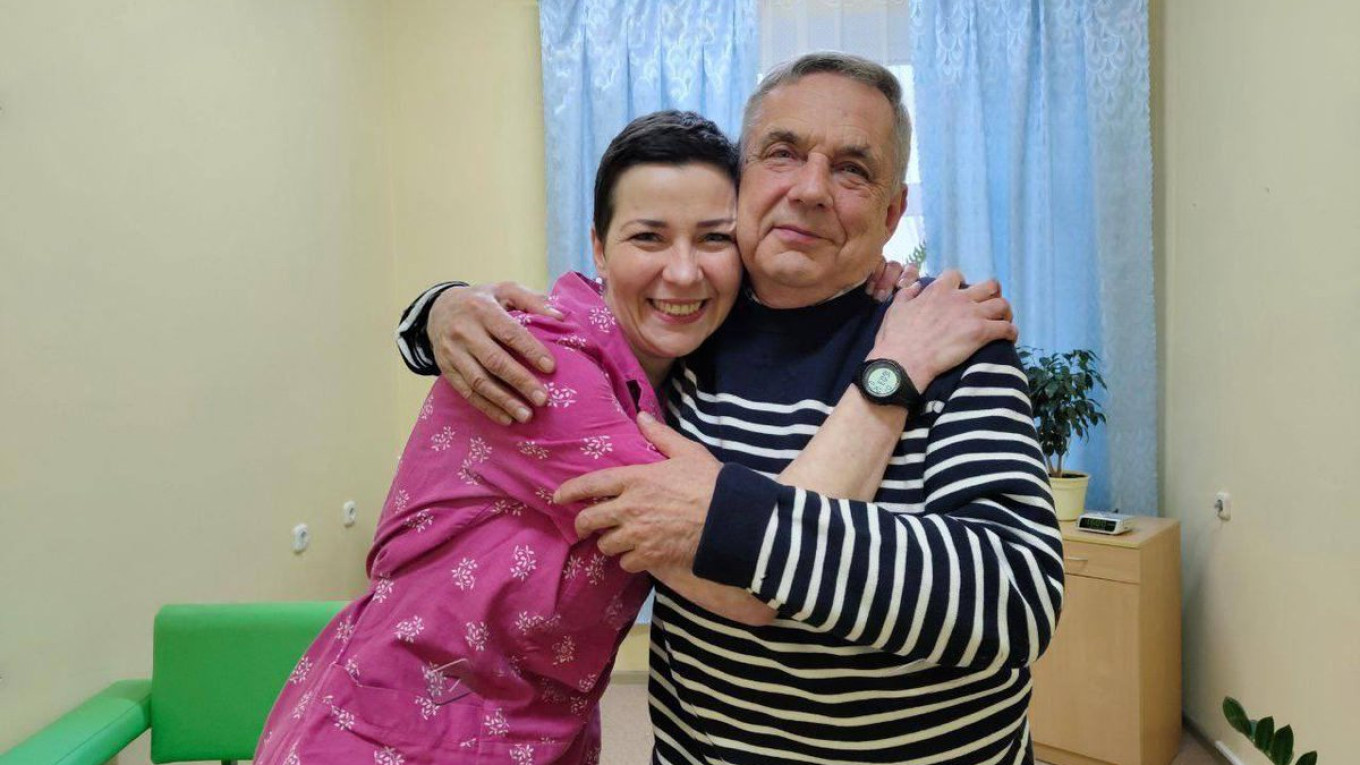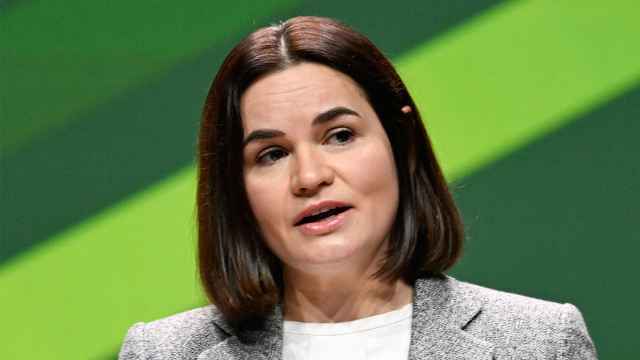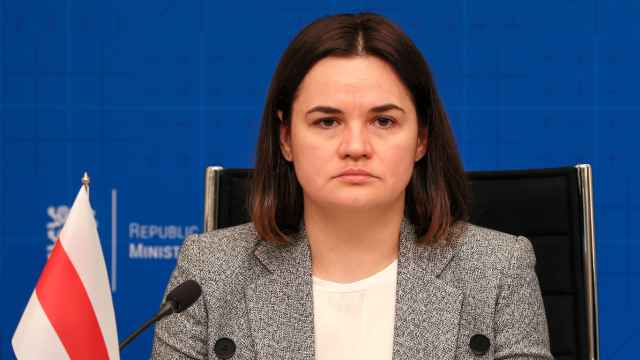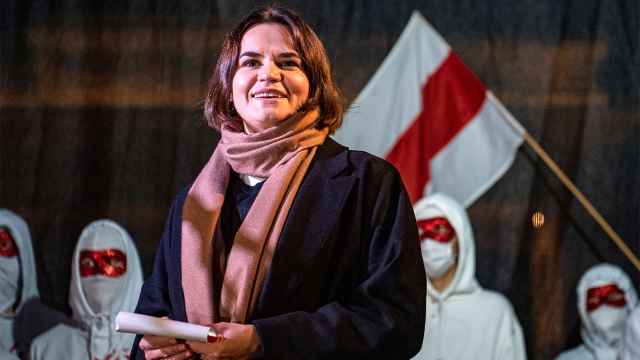Belarusian political prisoner Maria Kalesnikava has appeared in a photo with her father, in her first appearance since she disappeared from contact 21 months ago.
Kalesnikava, who led huge 2020 protests against President Alexander Lukashenko, was imprisoned after she famously ripped up her passport as the Belarusian KGB tried to forcibly deport her.
The 42-year-old, who is now serving an 11-year sentence in Homyel, was barred from contact with the outside world for months, leading her family and supporters to fear for her life.
The photo shared Tuesday by Raman Pratasevich, the former head of a major Belarusian opposition Telegram channel who has cooperated with the regime since being abducted from a European flight in 2021, shows Kalesnikava and her father Alexander hugging each other.
Details of under what conditions the meeting between Kolesnikova and her father took place remain unclear.
In September, AFP reported that two ex-prisoners released from the same colony said that Kalesnikava spent months in the harshest "PKT" type of punishment cell, held in isolation from other inmates, who were banned from talking to her.
At that time, her sister Tatsiana Khomich, who lives abroad, told AFP that she was “worried for her life.”
Kalesnikava had lost weight after abdominal surgery in November 2022 but has now lost “even more,” unable to recover in harsh conditions and denied an appropriate diet, her sister said.
Then, the letters stopped and the last one was dated Feb. 15, 2023. Contact was also lost with other key imprisoned opposition figures.
Kalesnikava is one of over 1,000 political prisoners in Belarus.
AFP contributed reporting.
A Message from The Moscow Times:
Dear readers,
We are facing unprecedented challenges. Russia's Prosecutor General's Office has designated The Moscow Times as an "undesirable" organization, criminalizing our work and putting our staff at risk of prosecution. This follows our earlier unjust labeling as a "foreign agent."
These actions are direct attempts to silence independent journalism in Russia. The authorities claim our work "discredits the decisions of the Russian leadership." We see things differently: we strive to provide accurate, unbiased reporting on Russia.
We, the journalists of The Moscow Times, refuse to be silenced. But to continue our work, we need your help.
Your support, no matter how small, makes a world of difference. If you can, please support us monthly starting from just $2. It's quick to set up, and every contribution makes a significant impact.
By supporting The Moscow Times, you're defending open, independent journalism in the face of repression. Thank you for standing with us.
Remind me later.






